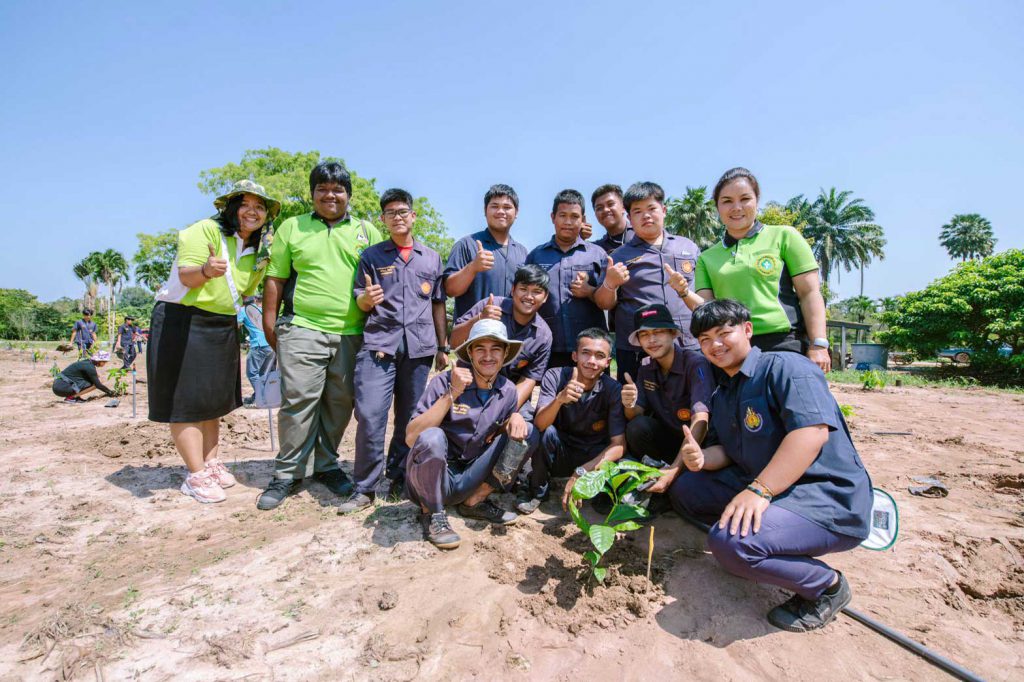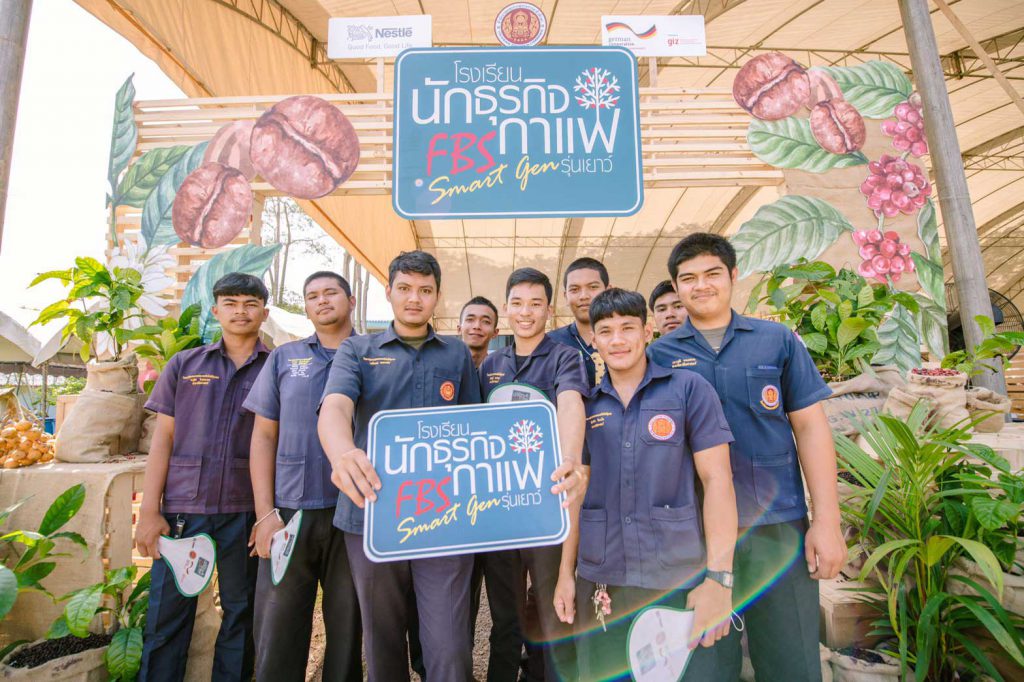Dozens of vocational students and Robusta coffee growers in Chumphon province gathered in the classrooms, hoping to reshape the future of coffee beans of southern Thailand.
Speaking during the opening ceremony of the event entitled: Farmer Business School (FBS) – SmartGen at Chumphon College of Agriculture and Technology, Chumphon governor Wiboon Rattanapornwong has encouraged more Thai Robusta coffee farmers to adopt intercropping model an integral part of their farm management system.
“The model will reduce risk and help you (farmers) get a stable or even higher income,” he said.
During the half-day event, students were divided into three groups and learned different topics such as transplanting coffee seedling, keeping production records and drying coffee beans from smart farmers and experienced field advisors of Nestlé and German International Cooperation (GIZ) Thailand.
Mr. Wiboon also urged local farmers and students to use the classrooms during the event as platform for exchanging knowledge and experience about Robusta beans that are plucked from the South, in particular from Chumphon due to the province’s favorable location and weather conditions.

Chumphon governor’s remark was echoed by Tatrit Kunasol, Corporate Agricultural Services Manager, Nestle (Thai) Ltd, who hoped local coffee growers can make profit from intercropping system which is one of key topics in the Farmer Business School (FBS).
“Farmers who plants coffee trees with other crops are expected to earn up to 300,000 baht (9,910 USD) per rai a year,” Mr. Tatrit said.
According to him, multiple crops on coffee plantations do not only supplement their income, but also balance out their investment risk.
The event, organized on 12 November 2019, aims to inspire youngsters to seek work in farm and encourage more Robusta coffee farmers to manage risk by growing coffee with other crops such as durians, betel nut palms and mango trees.
The learning-by-doing FBS is part of the Improving Smallholder Coffee Farming Systems in Southeast Asia Project or shortly known as Coffee+.
In order to prepare the students who have potentials to become next generation farmers and have a mindset of farming as business, several topics taught at the FBS such as professional farm management and record keeping are planned to be included in the college’s curriculum.

In addition to 17 demonstration plots for multiple crops on coffee plantations set up throughout Chumphon, one more plot has also been established inside the campus for the vocational students.
Robusta coffee grown in the South has long been threatened by several factors, including declining prices, free trade agreement, climate change, a change in market trends and rapidly-changing consumer behavior.
Today, the issues remain major concerns for Thai farmers.





